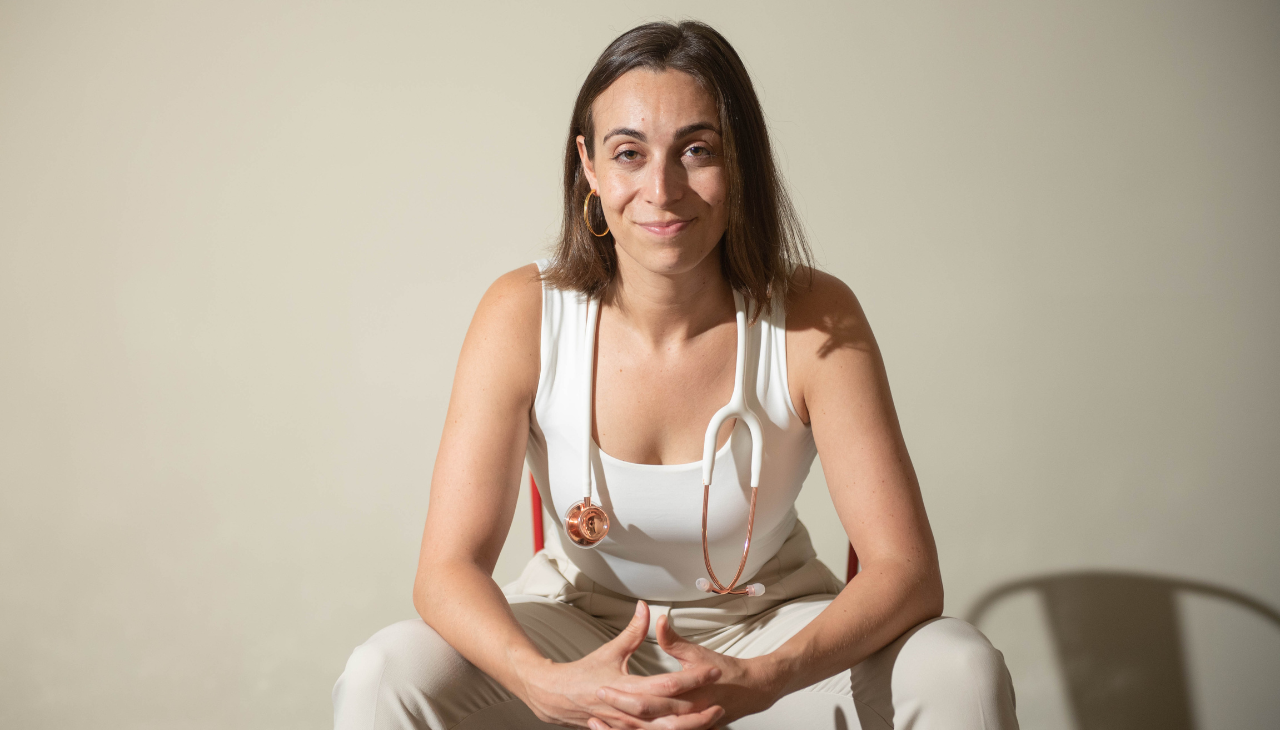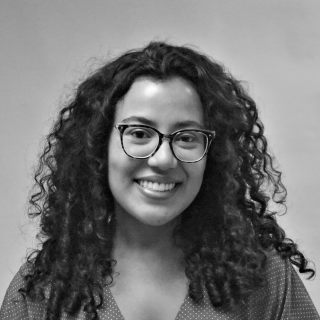
No one will suffer in silence
Olivia Richman is a content creator, TEDx speaker and recently wrote a book about the tough experiences in and out of medical school.
Since Olivia Richman’s grandparents emigrated from Cuba decades ago, education has been a priority for them. Her mother was the first in the family to graduate from elementary school and go on to higher education to become a doctor.
Richman followed her footsteps in medical school, a dream that became a nightmare when she was dismissed from the program for failing the final practice exam — the last one in order to graduate — right before covid hit.
Feeling lost and confused, Richman started working at one covid hotel in New York City, when hospitals started getting full. At the time, there were 80 patients and her mother was the only doctor and she was the only medical student. It was intense, but ultimately a life-changing opportunity as she was working side by side with her greatest inspiration in the height of the pandemic. Richman was finally able to reconnect with medicine.
“It was a very unique, special, one-of-a-kind bonding experience with my mom,” she said.

She eventually got another chance to complete her final exam, which she successfully did, and is now a Family Medicine Physician.
Over the years and throughout her experiences, Richman understood that there are many ways in which she can help others besides medicine. Committed to making quiet conversations loud, she engaged in different career pathways aiming to share all the knowledge she has acquired and assist others not only physically, but mentally.
Spreading knowledge
As a third-year medical student in 2017, Richman used to work as part of her rotation in Brooklyn and Staten Island. There, she had contact with many cases of teen pregnancies, sexual assault, and lack of knowledge about the feminine body from girls coming in for help.
When she saw all that, Richman thought to herself about ways she could impact those girls outside of the medical facility. She decided to start a YouTube channel about sexual health and wellness, focusing on taboo topics. Aiming to talk about silenced conversations, she explains about masturbation, sex, sexually transmitted diseases (STDs) and more. She has always known that education on these topics are important because she grew up with her mom talking about it.
“She [her mom] wanted daughters who were empowered to make their own decisions,” Richman said.
She has already given two TEDx Talks on the topic of sex education in the country, and how it still is a taboo in most cultures — especially in the Latino one.

Empowering others
When Richman was dismissed from medical school, her coping mechanism to deal with all her thoughts was journaling. Feeling like she needed to get all the emotions she was feeling out onto a page, those random excerpts eventually became the first draft of her now published book The Thriver’s Guide to Medical School (New Degree Press, January 2022).
In a collection of personal life stories about relationships and breakups, body image, mental state, passion and purpose, and more; Richman shares her most vulnerable self so others who are going through a difficult time can identify with.
“I don’t want any other student to feel like they are alone in their failures,” Richman added. “Failure is normal but we hate talking about it.”
While having to deal with her own insecure thoughts, she remembers thinking to herself that there must be other medical students suffering in silence. The book came to be a safe space for people who ever felt alone in their hardships to come together.
“Why when we have a physical illness we immediately go to a doctor, but when something is wrong mentally we suffer,” she said. “Why arent we talking more about mental wellness as much as we are talking about physical wellness?”

Looking for more ways to empower other students, Richman started speaking at conferences and panels. One of the most memorable for her was for the Latino Medical Student Association (LMSA) held last January in Baltimore. She didn’t even finish her slides presentation because people from the audience started sharing their experiences with anxiety and depression in school. It was a one of a kind experience in which she felt truly connected with the listeners.
At the end of her lecture, a group of young students waited for her outside the room to ask more questions, learn more about her book, get her contact information and share experiences about the harsh realities of being a medical student. At that moment, Olivia was the closest thing to a rock star.
RELATED CONTENT
Adding to her long list of initiatives, Richman and her fiancé (who is a mental health therapist) started a podcast about relationships to talk about their arguments — in a not a perfect way. She wants to show couples that it is possible to go through their problems in a civilized way.
Finding her people
Growing up in a non-diverse area in northern New Jersey, Richman never realized something was missing until she went to college in 2007. Although she felt that she couldn’t truly connect with anybody in high school, it was when she moved to Washington D.C. — to attend The George Washington University — that she finally found her group of people and understood her feelings.
As an undergraduate, she was able to engage with the Black and Hispanic communities of her new town. They connected through cultural aspects such as going out dancing, listening to reggaeton and speaking Spanish — something she felt her friends from back home couldn’t understand.
“If you feel like an outsider, like I did, there is a reason,” she said.
However, in medical school, it hit again: she was the minority.
When she started her residency in 2021, Richman was the only Latina but the patients’ population she served was 80% Spanish speakers. The same language and culture played a role once again allowing her to connect and bond with the patients in ways others couldn’t.
“Patients feel grateful to be able to connect with you,” she said. “It’s different when people communicate in real time in the same language.”
More Latino Doctors
Usually when there is a language barrier between the patient and the doctor, there is a translation phone line for them to understand each other. Besides presenting technological difficulties often, this method also lacks empathy, Richman said.
Considering that the U.S. Hispanic population reached more than 62 million in 2021 — according to Pew Research Center — Richman believes that if we want to impact this community, there needs to be an intentional effort to increase the number of Latinx doctors in the country.
“When you hear someone in the language that they are speaking, they know they are being cared for,” she said. “I think half of being healthy and healing, it’s not only medicine, it really is just being connected with your patients.”
She advocates for the importance of feeling like you belong when around your people — something she didn’t have in high school, for example. A more inclusive and diverse health system is what Richman expects — and will keep working — for the future.
“I want to empower people and speak more,” she said. “I want to create more health and wellness in the world, and not just in the traditional medical sense.”











LEAVE A COMMENT:
Join the discussion! Leave a comment.